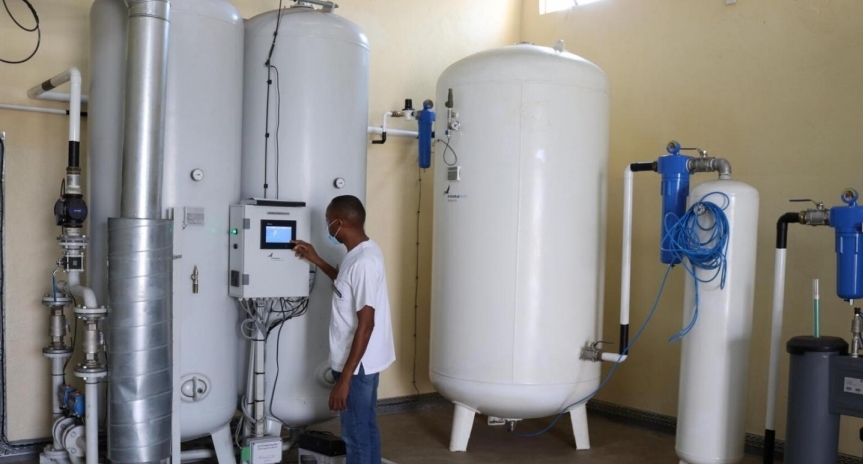COVID-19: UNICEF to deliver first 4 Oxygen Plant-in-a-Box packages to Uganda
The first four Oxygen Plant-in-a-Box packages have been ordered by UNICEF Uganda.

September 20, 2021: The first four Oxygen Plant-in-a-Box packages have been ordered by UNICEF Uganda and will soon be on their way to health facilities across the country, including in the cities of Masaka, Kabale and Jinja.
UNICEF has developed this innovative package in response to Covid-19 to help countries rapidly increase their oxygen producing capacity at hospitals and health clinics.
The fully functional oxygen plant package includes everything needed to produce large volumes of medical grade oxygen for patients, including accessories supplied in the right quantities, installation of equipment, and pre-planned maintenance services.
The plant packages are designed to support a medium to large health facility and can be operational within days of arriving. Each plant has the capacity to produce up to 720,000 litres of oxygen per day, capable of supplying the oxygen needs of about 50-60 covid-19 patients round the clock or more than 100 children with severe pneumonia.
“Oxygen plants are complex goods that can take six months or longer to design and order,” said Kristoffer Gandrup-Marino, chief of product innovation at UNICEF Supply Division.
“That is why we developed this off-the-shelf package. Pre-designed plants make these products cheaper, and able to arrive in country much, much faster, ultimately meaning we can save more lives at this critical time. It will play a crucial role in increasing access to medical oxygen, for COVID-19 patients as well as young children with severe pneumonia – a disease which still kills a child every 39 seconds, despite being preventable and treatable,” said Gandrup-Marino.
Like much of the world, the overwhelming number of Covid-19 patients in need of oxygen therapy has far outstripped existing capacity at many facilities in Uganda.
“COVID-19 has put enormous pressure on health care facilities across Uganda, particularly in terms of oxygen production capacity. Without available oxygen we know Covid-19 patients are not surviving who otherwise could be saved,” said Laura Siegrist Fouché, deputy representative, operations, UNICEF Uganda. “These plants will be crucial to help the government meet oxygen needs for Covid-19, with the country needing an estimated 8,000 cylinders of oxygen daily. Long term, we know they will also be able to be integrated into the health system to provide medical care for children with pneumonia, premature newborns, or patients undergoing surgery, saving thousands of lives.”
The plants were partially funded by contributions made to UNICEF’s ACT-A Supplies Financing Facility (ACT-A SFF), a pooled fund that supports low- and middle-income countries to access COVID-19 health supplies.
Many more plants are expected to be ordered by other countries globally within the coming months, with the ACT-A SFF continuing to support equitable access to COVID-19 supplies, including life-saving oxygen.
So far, UNICEF has shipped over 30,000 oxygen concentrators, is providing support to countries to strengthen and plan national-level oxygen systems, and, with the Oxygen Plant-in-a-Box, is now also able to offer a solution that is quick to have delivered and easy to maintain to provide oxygen at medium sized health facilities.
The UNICEF Oxygen-Plant-in-a-Box has been modified to be more robust, able to operate in high heat and altitudes, and resilient to voltage fluctuations.


